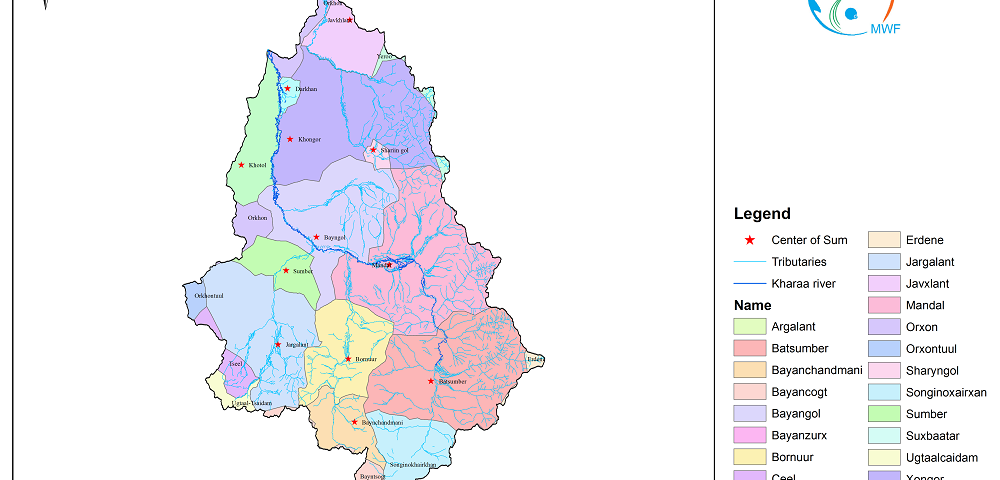2013 онд энэхүү судалгааг ЮНЕСКО, Монголын Үндэсний Хорооны захиалгаар гүйцэтгэв. Судалгаагаар тус голын усны химийн найрлага, чанар, бохирдлын эх үүсвэрийг тогтоож, цаашид авах арга хэмжээг зөвлөмж болгов. Судалгааны тайлан зөвхөн англи хэлээр гарсан.
Сэдэвчилмэн зургуудыг манай FACEBOOK хуудаснаас үзэж болно.

Water Quality of the Kharaa River
Basin, Mongolia: Pollution threats and hotspots assessment
Final report
Editor: Sarantuyaa Zandaryaa, UNESCO
Prepared by:
- Batimaa Punsalmaa, Mongolia Water Forum – Uskhelts
- Erdenbayar Yadamsuren, Central Laboratory for Environment and Meteorology
- Tumurstooj Dashdorj, Institute of Meteorology, Hydrology and Environment
- Oyuntugs Tserendendev, National Water Committee of Mongolia
- Davaadalai Batnasan, Mongolia Water Forum – Uskhelts
- Sarantuyaa Zandaryaa, UNESCO (Paris, France)
This report presents results of water quality assessment of the Selenge River Basin (Mongolia),
with specific emphasis on assessment of pollution threats and pollution hotspots in the Kharaa River Basin.
The study was conducted in the framework of UNESCO-executed activities under the UNDP-GEF Project on “Integrated Natural Resources Management in the Baikal Basin Transboundary Ecosystem” (Mongolia and Russia). The project objective is to spearhead integrated natural resources management of Lake Baikal Basin, ensuring ecosystem resilience and reduced water quality threats in the context of sustainable economic development.
The project is executed by UNOPS. UNESCO’s International Hydrological Programme (IHP) is an international executing partner for the project.
This study was carried out by UNESCO, in collaboration with the National Water Committee of Mongolia, Mongolia Water Forum –‘Uskhelts’ and a national team of experts. The study and report preparation was coordinated by Sarantuyaa Zandaryaa, Division of Water Sciences, UNESCO. The national team of experts was coordinated by Tsend Badrakh, National Water Committee of Mongolia, and comprised the following experts: Batimaa Punsalmaa, Mongolia Water Forum – Uskhelts; Erdenbayar Yadamsuren, Central Laboratory for Environment and Meteorology; Tumurstooj Dashdorj, Institute of Meteorology,
Hydrology and Environment; Oyuntugs Tserendendev, National Water Committee of Mongolia; and Davaadalai Batnasan, Mongolia Water Forum-Uskhelts. Tserendolgor Munkhtsetseg, Mongolia Water Forum – Uskhelts, assisted in the preparation of the report for publishing.
Findings and recommendations of the study were discussed with relevant stakeholders at the National Workshop “Selenge – A River without Borders”, organized by UNESCO in collaboration with the National Water Committee and Ministry of Environment and Green Development of Mongolia, which took place in the State Palace in Ulaanbaatar on 04 June 2013. The workshop participants included representatives of the Ministry of Environment and Green Development, Ministry of Health, Ministry of Industry and Agriculture, River Basin Authorities, research institutions, universities, NGOs and the private sector.
The key outcomes of the workshop discussions were incorporated in this final report. The report also benefited from discussions at the scoping meetings and workshops, organized by UNESCO in the framework of this study.


